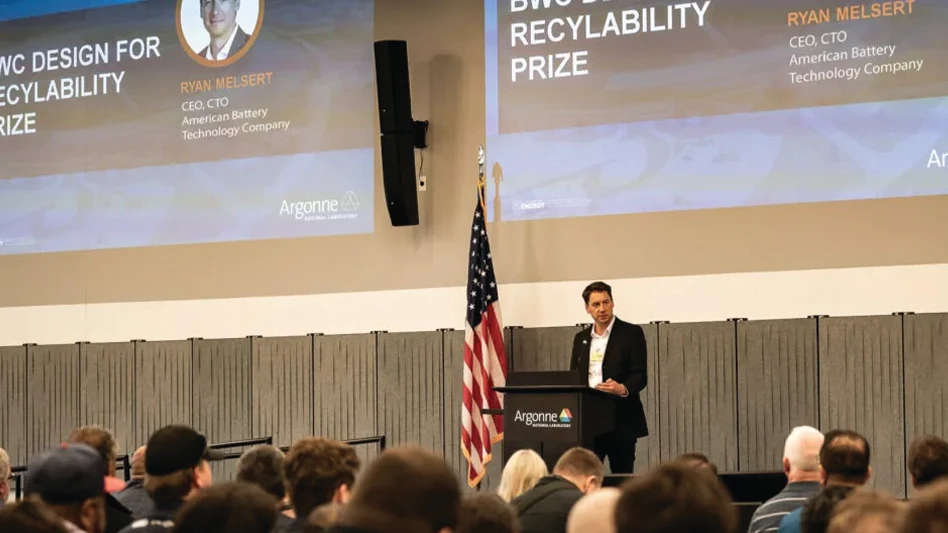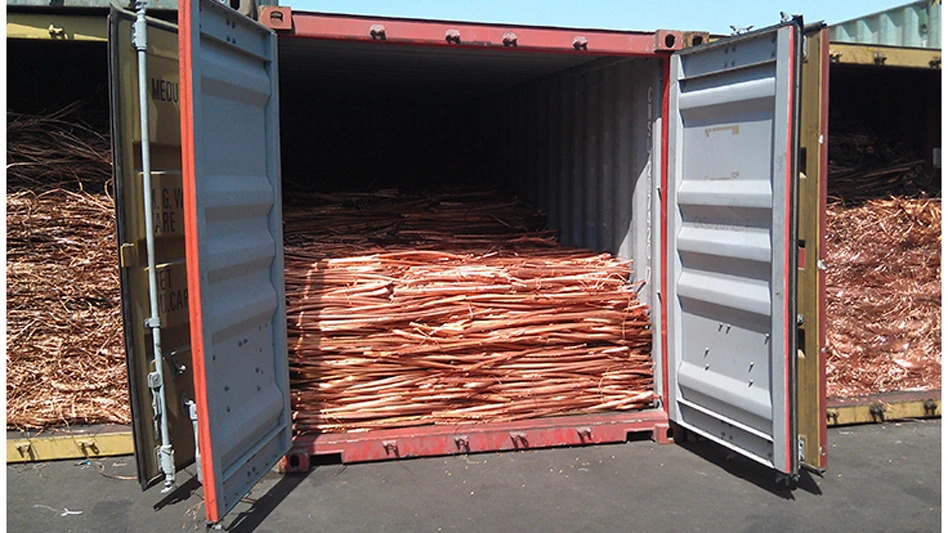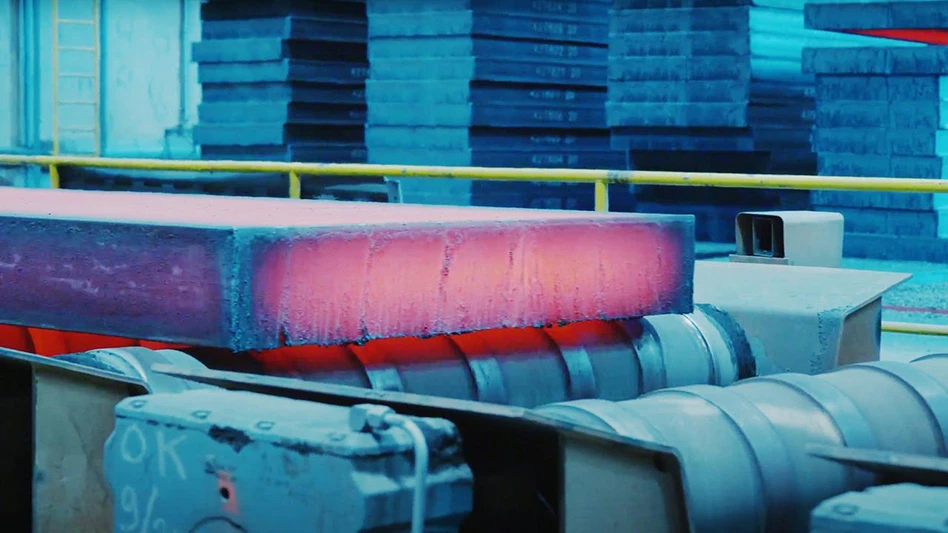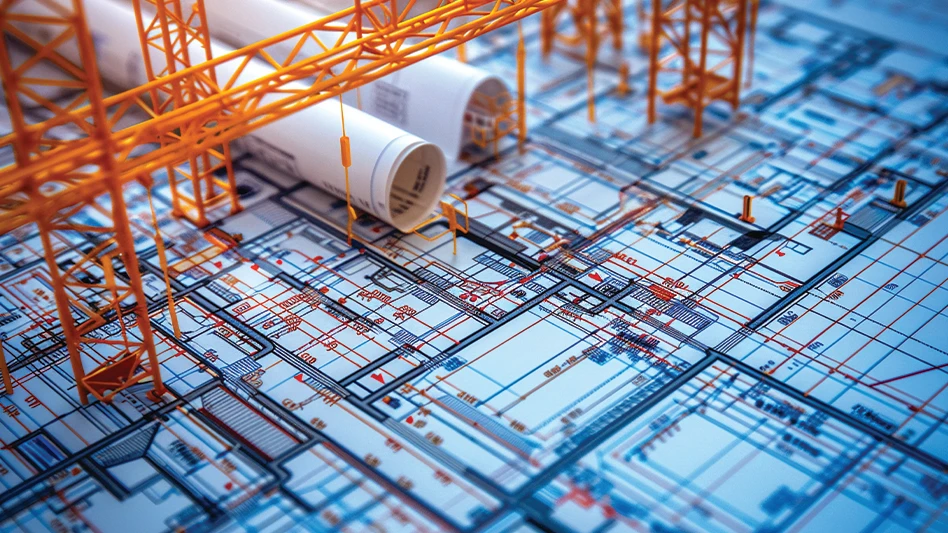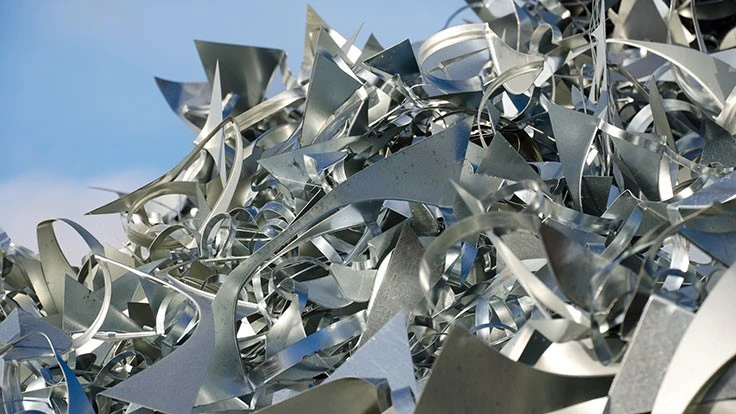
Petair | stock.adobe.com
Primary producers of nonferrous metals in the Middle East region increasingly are using secondary metal feedstocks and more sustainable processes in their production, according to speakers at the Bureau of International Recycling (BIR) Non-Ferrous Metals Division meeting Oct. 18. The meeting was part of the BIR’s 2022 World Recycling Convention in Dubai, United Arab Emirates (UAE). The trend mirrors investments that are being made in the U.S. and Europe by global metals producers such as Novelis and Aurubis.
Two nonferrous operators in the United Arab Emirates—Fadi Awadhalla of Emirates Global Aluminium (EGA) and Abdullah El Doukhei of Ducab Metals Business (DMB)—told those in attendance that primary metal producers increasingly are using scrap and renewable energy in their production processes. They also said customers of metals producers are willing to pay a “green” premium as they attempt to meet their net-zero targets.
Awadhalla, vice president of Casthouse, part of Dubai-based EGA, set out that company’s drive to become a global sustainability leader in the aluminum industry and to produce only Aluminium Stewardship Initiative- (ASI-) certified products by 2030. The ASI, Melbourne, Australia, is a global nonprofit standards-setting and certification organization that has established performance and chain of custody standards for the responsible production, sourcing and stewardship of aluminum.
Awadhalla said that by 2050, EGA seeks to reach net-zero greenhouse gas emissions throughout its operations and supply chain (Scopes 1, 2 and 3), which would require “vastly increasing production of CelestiAL, the world’s first metal produced with solar power.” More than 40,000 metric tons of CelestiAL were being supplied to automaker BMW, he said, “but all the automotives want it” and are prepared to pay for the premium product.
EGA is planning a 150,000-metric-ton-per-year recycling facility in the UAE for 2024 that will produce billet from postconsumer and preconsumer scrap. The company also is exploring a 30,000-metric-ton remelt facility. Additionally, Awadhalla added that EGA could develop recycling capacity nearer its customers, especially those in Europe and North America, creating opportunities for scrap supply.
“We are new to this, and we want to learn,” he said of recycling. “Ten years ago, if someone suggested recycling, I’d have said: ‘It’s nice meeting you, but this is not our business.’ Now, all the primary producers are looking at recycling whether they like it or not.”
DMB, part of the Ducab Group, headquartered in Dubai, specializes in high-grade aluminum and copper products, 75 percent of which are exported. Senior plant manager El Doukhei said the company started using scrap in 2017, with its proportion rising to 25 percent by 2020. While the company’s use of scrap declined slightly during the COVID-19 pandemic, it was planning to increase that figure. However, El Doukhei said challenges associated with increasing scrap use are the fluctuating volumes of available material and inconsistent quality, particularly regarding impurities in recycled copper. “We need a quality commitment from the market.”
Regarding whether the London Metal Exchange, or LME, should have separate trading for “green” and nongreen metals, Awadhalla said, “EGA, long- term, would prefer the basic LME trading to be green. Anything not green should be discounted.”
He added that customers around the world have been refusing to sign contracts for 2025 unless they could be guaranteed to receive low-carbon aluminum products.
Commenting on both presentations and the region’s growing preference for scrap and sustainable production, BIR Nonferrous Division President Dhawal Shah of Metco Ventures LLP, Mumbai, India said he could see “how transformational the Middle East landscape is going to become,” adding, “You can see the change and the dynamic—it’s what the future looks like.”
In a BIR World Mirror-based market report that was presented during the event by divisional board member Sebastien Perron of Labrador Recycling, a metals trading and logistics firm based in Springfield, Massachusetts, he noted that, until recently, business conditions for the secondary nonferrous metals industry remained generally positive. Now, however, mounting geopolitical tensions and macroeconomic issues “had conspired to create a far more challenging playing field.”?To make matters worse, Perron said, some countries had become more inward-looking and were considering policies that run counter to the spirit of free trade.
Latest from Recycling Today
- US Plastics Pact unveils 2023-2024 Impact Report
- Reconomy adding digital product passport service to textile EPR solution
- PRE warns EU’s plastics sector at a crossroads
- Electra, Interfer to partner on low-carbon iron for green steel production
- Nucor sees slimmer profits in Q4
- Vinyl Sustainability Council adds metals recycling firm
- Ecomaine targets multifamily recycling collection
- Mack Trucks partners with LEGO on EV truck building set

